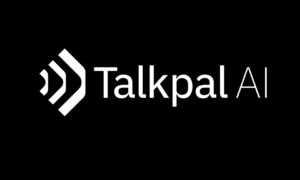Language has become more than a means of communication, it is a lens through which we can understand the world and express our own identity. When we start on a new journey of learning a language, we do more than memorize the vocabulary or conjugate the verbs- we step into an entirely new cultural and cognitive framework. This transformative process creates profound effects on personal identity and reshapes how we perceive ourselves and interact with the world.
Language and Personal Identity
Personal identity is a complex construct, consisting of how we view ourselves and relate to others. It transforms over a while, shaped by experiences, values, and cultural influences. Language plays an important role in this evolution, acting as a bridge between expression and thought. Learning a new language provides access to different cultural lenses, enabling individuals to adopt new perspectives. For instance, the Japanese language emphasizes humility and context, while German’s structured grammar mirrors precision in communication. These linguistic nuances impact how learners think, feel and perceive the world around them, and this slowly changes their self-identity.
Cultural Integration and Self-Perception
Understanding New Cultures
Language learning is inseparable from cultural immersion. By engaging with the culture of the language, learners can attain insights into customs, traditions, and worldviews. This cultural integration can widen their horizons, allowing them to see the world through the means of a rich and more inclusive lens.
For instance: an English speaker who is learning Arabic may come to appreciate the significance of hospitality in Middle Eastern cultures, through common greetings and phrases. This understanding will further deepen cross-cultural appreciation and build a sense of connection with varied communities.
Changes in Self-Perception
Several bilingual individuals feel like “different people” when speaking various languages. This phenomenon, also known as code-switching, highlights how language structures self-perception. A French learner may learn a language’s knack for eloquence and romanticism, changing how they express their emotions. These shifts are not just superficial- they showcase the incorporation of new cultural norms and values, with a dynamic sense of self that combines varied cultural perspectives.
Challenges and Transformation
Identity Conflicts
While the advantages of language learning are immense, it is not without its challenges. Learners usually face identity conflicts, especially when balancing dual cultural affiliations. For example: when a second-generation immigrant learning their heritage language may feel torn between two cultural worlds, finding it difficult to fully resonate with either. However, these challenges also present growth opportunities. By embracing both identities, learners can create a unique bi-cultural identity that enables them to navigate varied spaces with ease.
Psychological Resilience
Overcoming the difficulties of language learning also develops psychological resilience. The efforts taken to learn a foreign grammar system or hold a conversation in a non-native tongue build patience, flexibility, and determination. Apart from improving personal identity these traits also prepare learners to deal with broader challenges of life with confidence.
A key factor in developing this resilience is the combination of human tutors and AI-driven tools, as offered by platforms like Preply Business. This hybrid approach personalizes the learning experience, providing tailored guidance and real-time feedback to help learners navigate complex concepts and overcome obstacles. By addressing challenges with targeted support, learners build the confidence and flexibility needed to succeed in both language learning and other aspects of their personal and professional lives.
Practical Benefits for Personal and Professional Life
Better Communication
The ability to communicate across cultures is a major advantage of language learning. It enables individuals to build meaningful connections with people from different backgrounds, this enriches their personal and professional relations. For example: a traveler fluent in Italian will have deeper interactions with local people, which will make their experience more fulfilling.
Personal Fulfillment
Beyond the professional advantages, language learning also provides personal fulfilment. It opens up the doors to new friendships, experiences, and cultural understanding. The process itself is a journey of self-discovery, allowing learners to explore and expand their sense of identity.
Career Advantages
In the professional sphere, language skills are deeply valued. Bilingual or multilingual employees usually have access to a wide array of opportunities and they are better equipped to navigate global markets. Studies show that bilingual employees earn up to 20% more than their monolingual peers, this demonstrates the high demand for linguistic skills in the global economy.
The psychological impact of language learning on personal identity is significant. Opening the door to new ways of thinking, feeling, and expressing oneself, changes how individuals perceive themselves and their place in the world. Language learning is more than just an intellectual exercise- it is a transformational journey that enriches the mind, deepens cultural connections, and expands personal horizons. For those considering learning a new language, the rewards go far beyond communication. It is an opportunity to discover new dimensions of yourself and the world creating a more dynamic, inclusive, and resilient sense of identity.



































